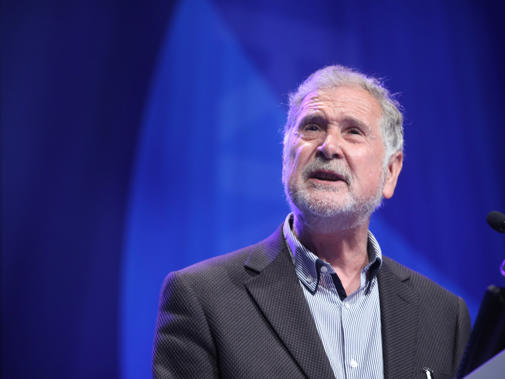The Government’s handling of recent pay disputes with public sector workers is reminiscent of the Winter of Discontent, say doctors.
A motion at the BMA annual representative meeting on 4 July raising concerns that the UK Government has ‘no grasp of the real scale of the crisis in either the NHS or social care’ – despite a long-awaited workforce plan being published last week – passed overwhelmingly.
It urges the government to listen to the concerns of front-line health staff and deliver the investment the NHS and its workforce urgently need, saying the government has offered ‘little of substance’ to improve recruitment, retention and morale.
Tyneside GP George Rae (pictured above), chair of the BMA northeast regional council, tabled the motion.
He said: ‘The gravity of how desperate things have become on the frontline has simply not got through. The government in England has earned the reputation for absolute abdication of responsibility for the public’s health.
‘Look at how the government has handled the junior doctors strike and has not come to the negotiating table realistically. Does it not recognise that junior doctors have come to this point of action after years of pay cuts and as a result of utter exasperation caused by working in an NHS which seems to have little respect for its workforce.
‘Does it not recognise the long-standing feeling of junior doctors, and indeed of all doctors, of being undervalued?’
'Crisis, what crisis?'
Dr Rae compared claims by prime ministers Rishi Sunak and Boris Johnson to be on top of issues in the NHS to the behaviour of former Labour prime minister Jim Callaghan who in the winter of 1978-79 was quoted as saying ‘Crisis, what crisis?’ at a time when litter was piling up in the streets and bodies were not being buried.
While it was a paraphrase by a tabloid newspaper rather than anything he actually said, it successfully conveyed the impression that he was out of touch.
‘He didn’t get it,’ Dr Rae told ARM delegates. ‘Where have all the secretaries of state been over the last 10 years? Have they not got it? Have they not realised, until Friday, that there’s a workforce problem? Did they not realise that the waiting lists were long, long before COVID?’
Dr Rae said the number of vacancies and future vacancy projections identified in Friday’s government workforce plan showed the scale of the current crisis in the NHS.
‘The massive, untenable workload and successive pay cuts are haemorrhaging doctors and nurses faster than we can replace them,’ he said. ‘How much more can actually be squeezed out of a really exhausted workforce? The government has offered little of substance to improve recruitment, retention or morale and there is no doubt that if we don’t get pay restoration things will get worse.
‘If the Government is not going to listen to the junior doctors, not going to act accordingly and listen to what healthcare workers on the front line are saying, it is a really serious moment in the national health service.’
Short on substance
Grant Ingrams, a GP in Leicestershire, spoke against the motion – saying the words ‘little of substance’ were too generous to the Government.
‘I would love to see that little substance,’ he said, arguing that figures showing there are now more than 2,000 fewer full-time equivalent GPs employed than in September 2015 are proof that nothing at all has been done.
‘I recently choked on my cornflakes hearing the prime minister claim the number of GPs had increased,’ Dr Ingrams added. ‘The Government has offered nothing of substance to improve general practice. They have taken repeated action to make the situation worse.’
Dr Rae argued ‘semantics’ should not prevent the passing of the motion, the spirit of which is to urge the government to listen to front line staff. It passed, with 91 per cent voting in favour.

